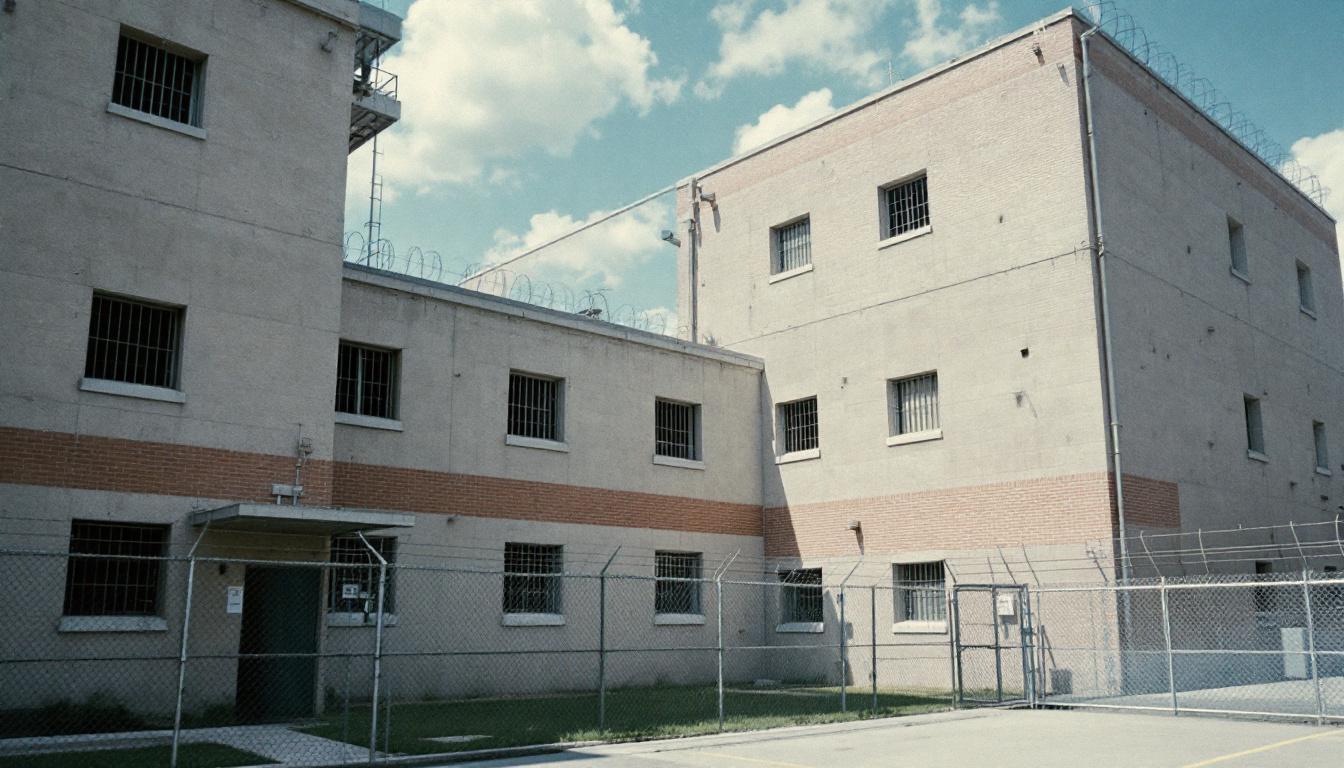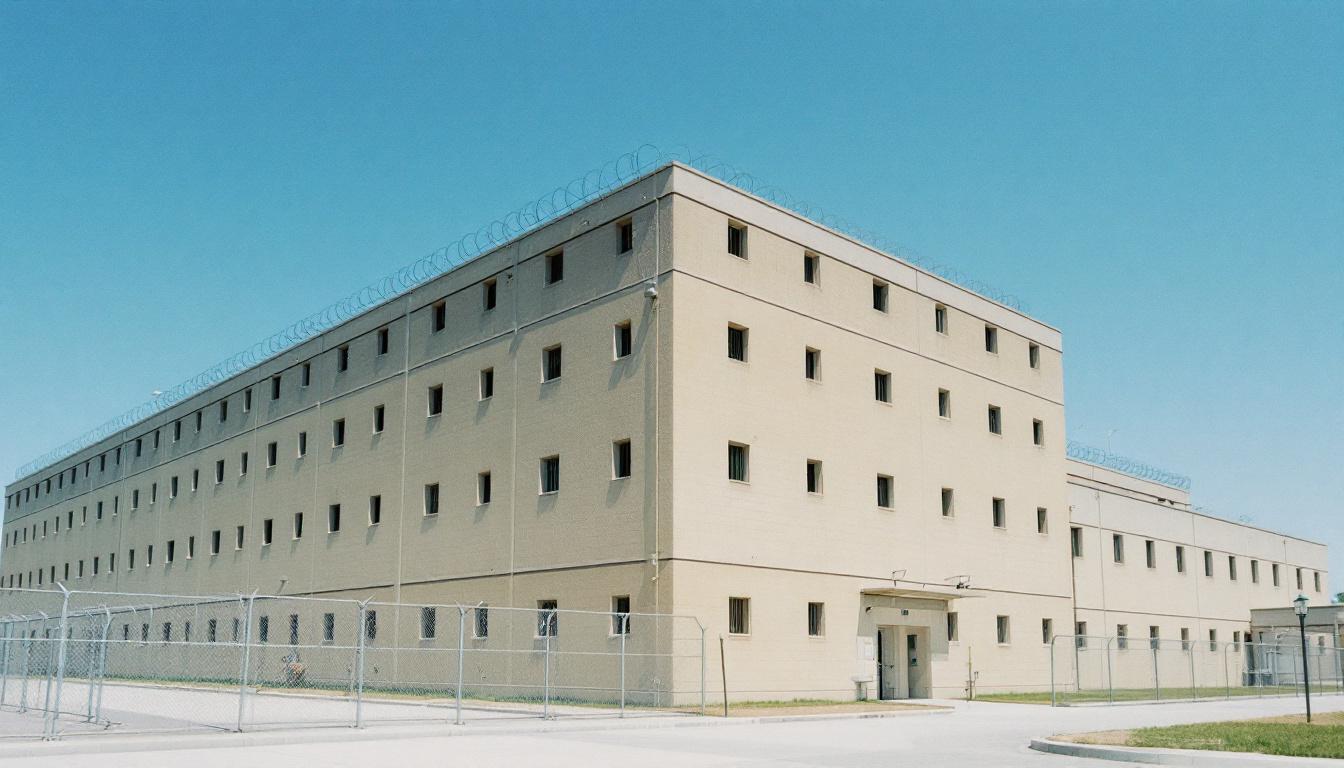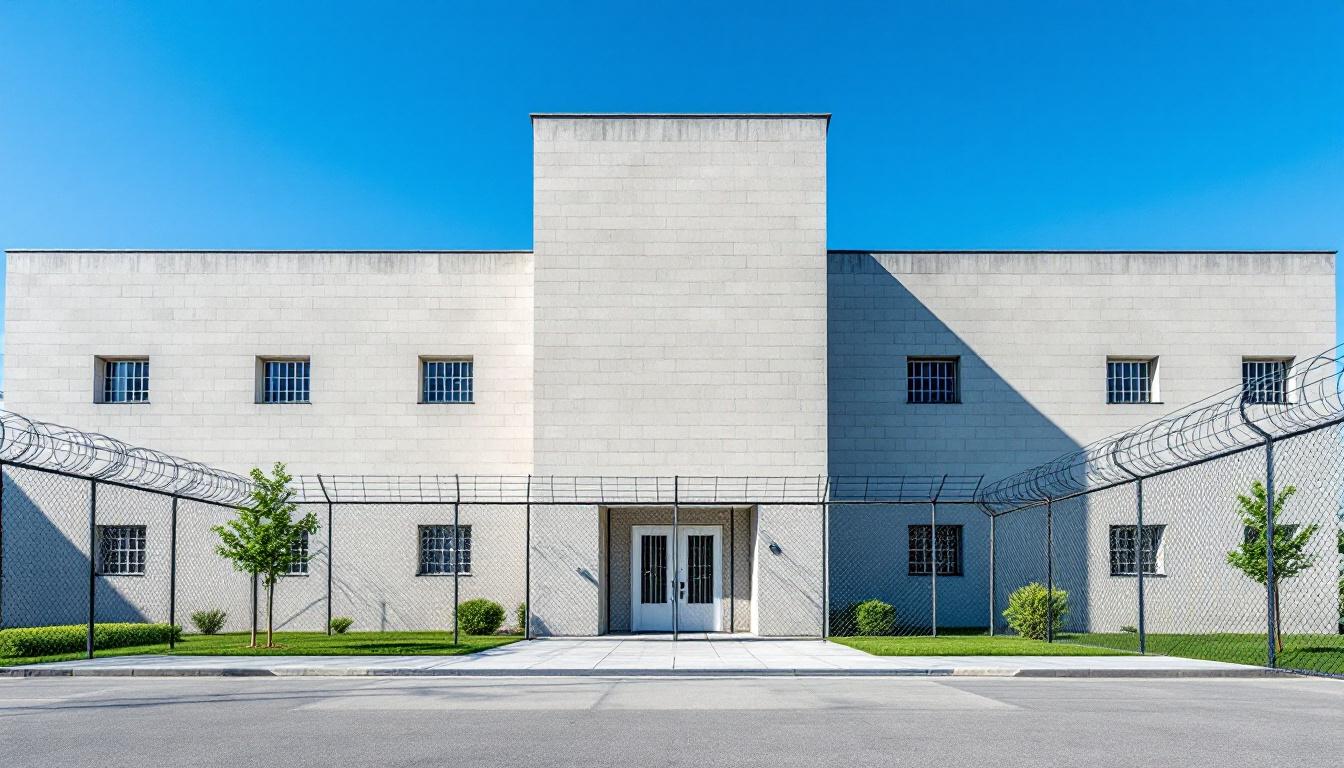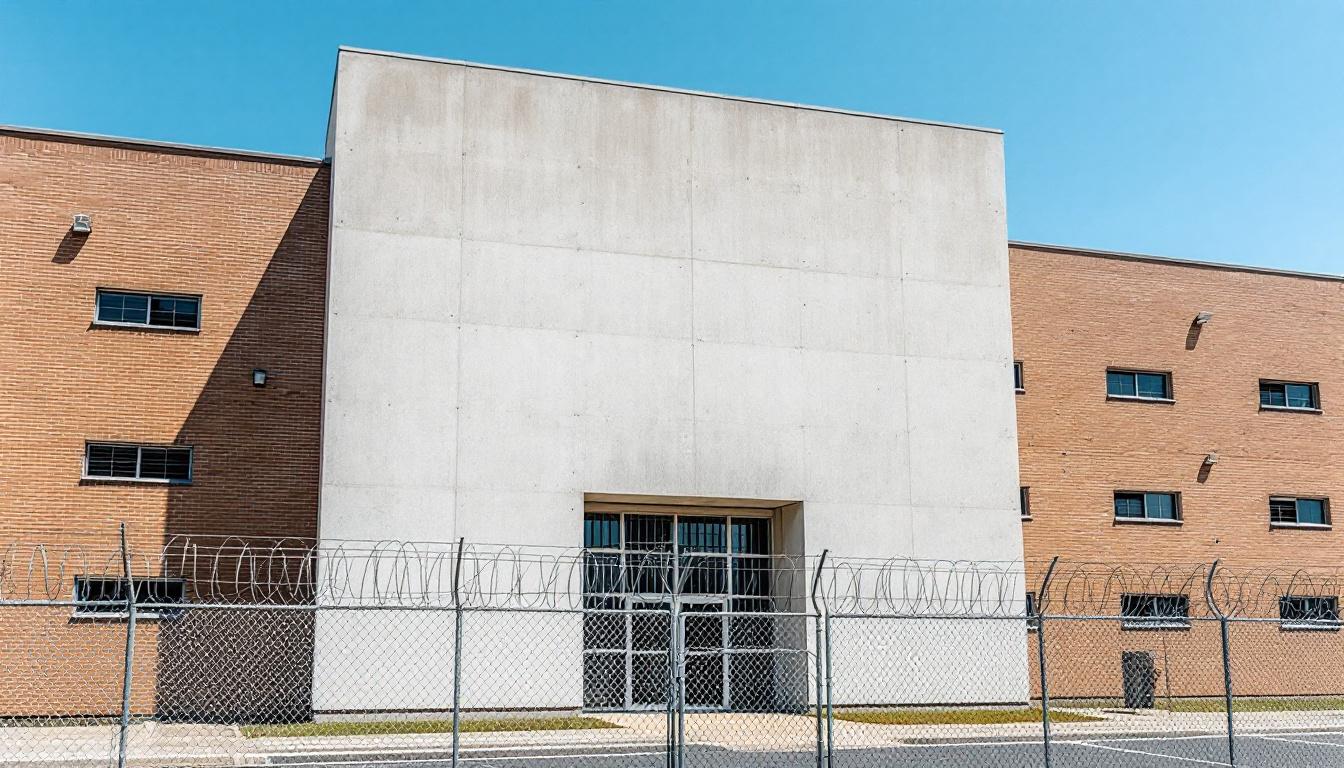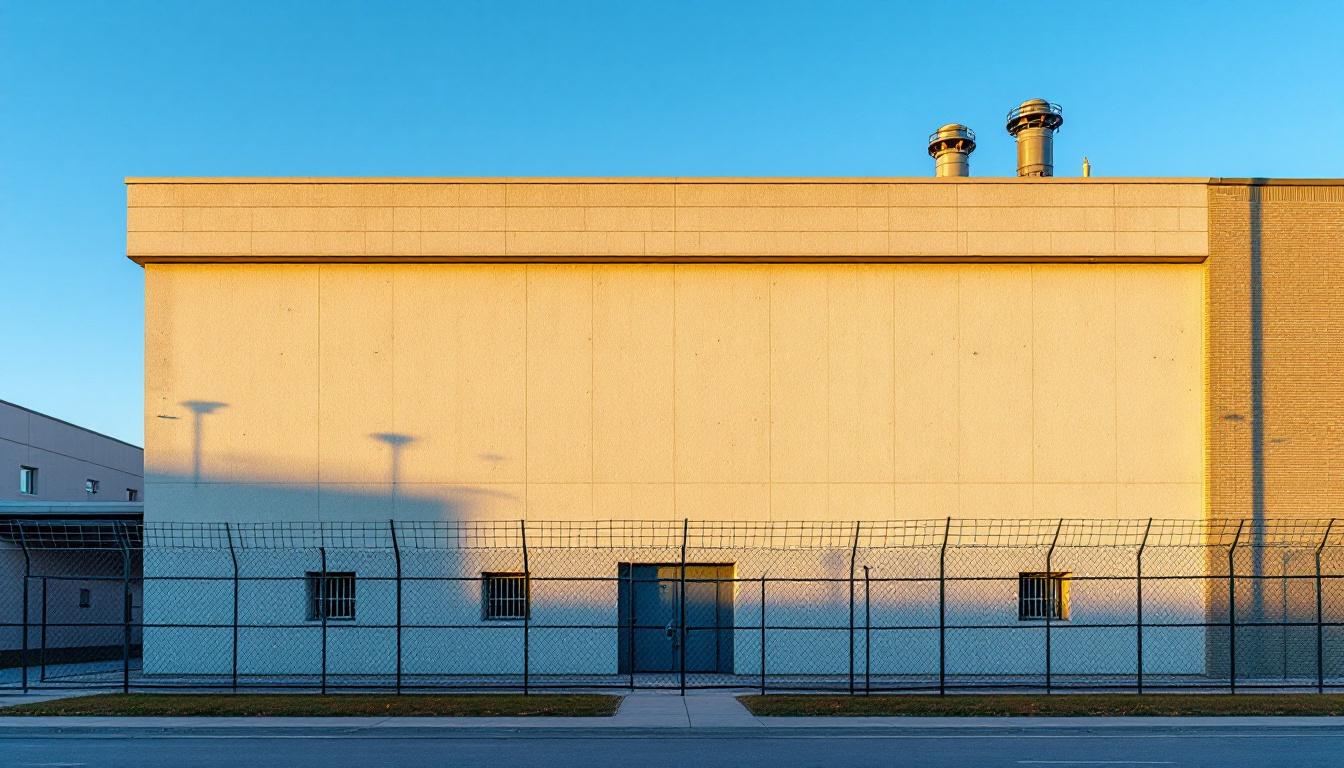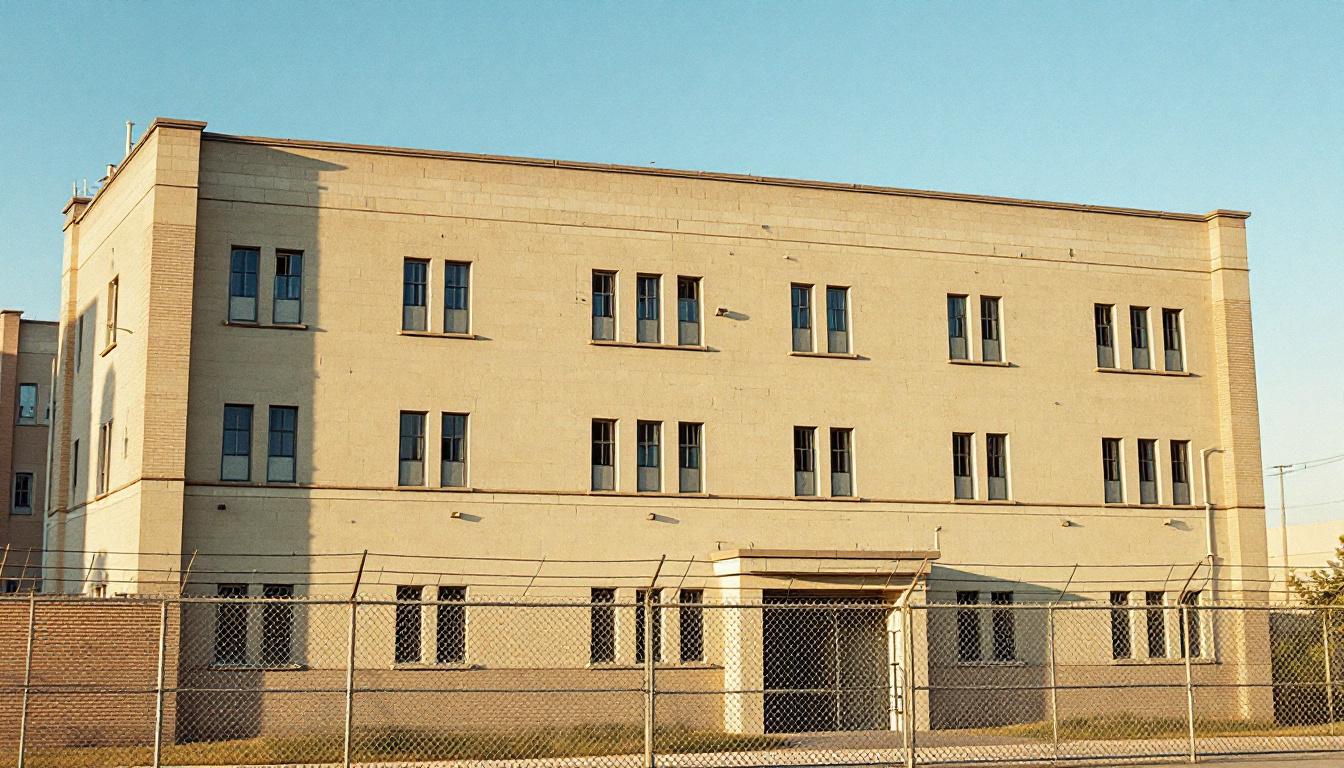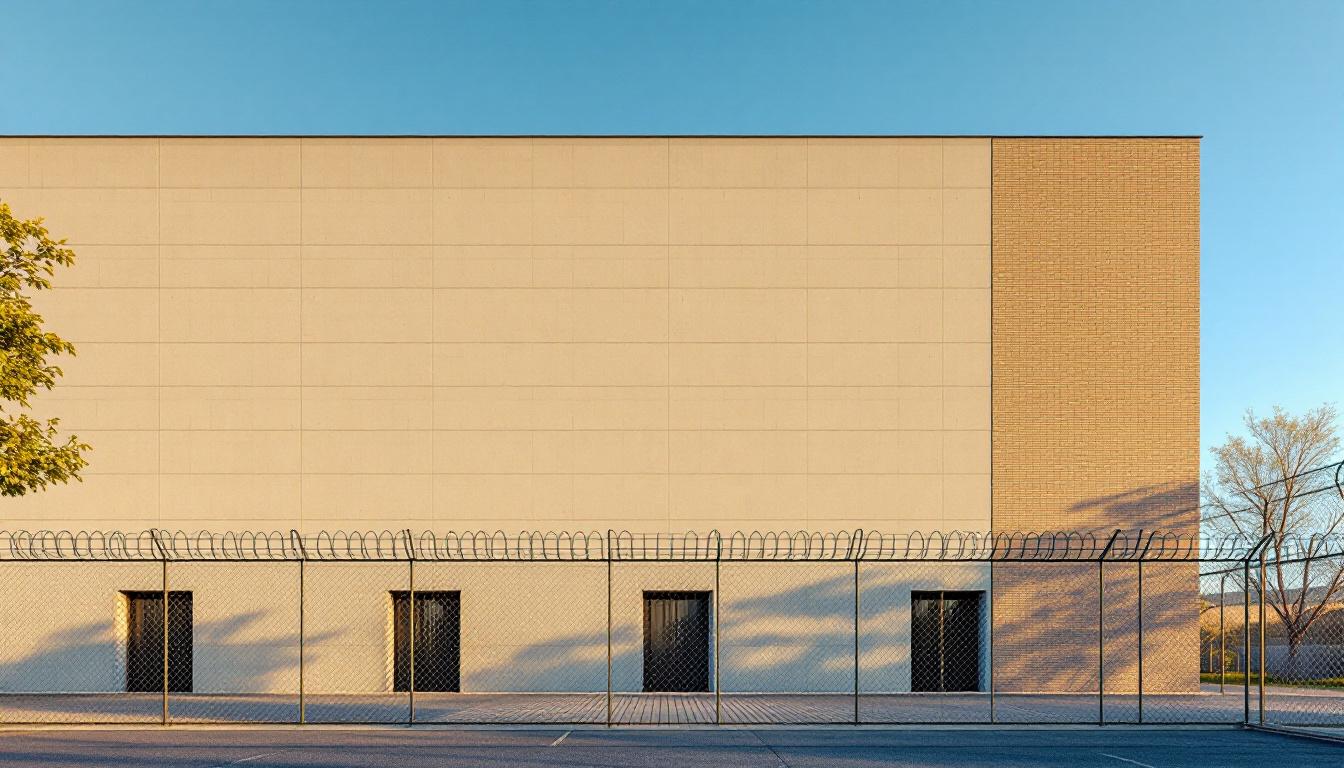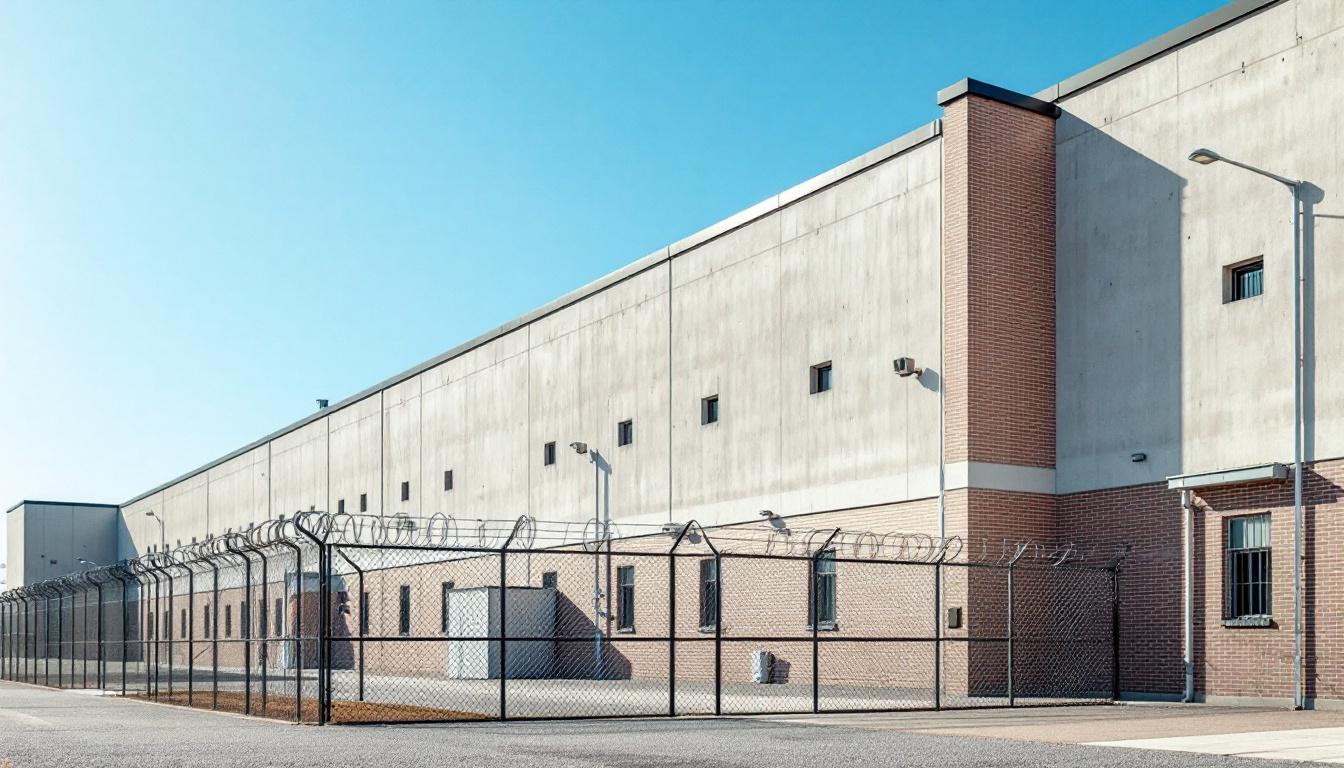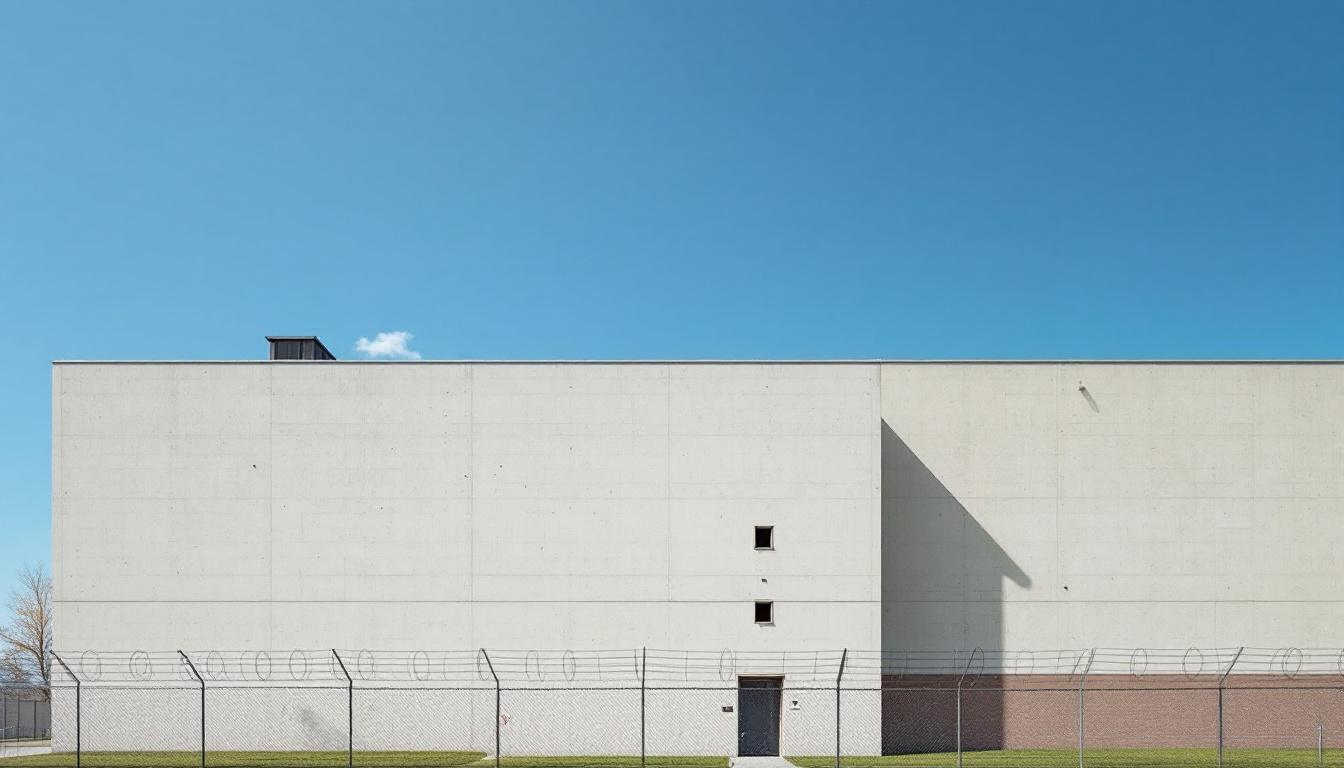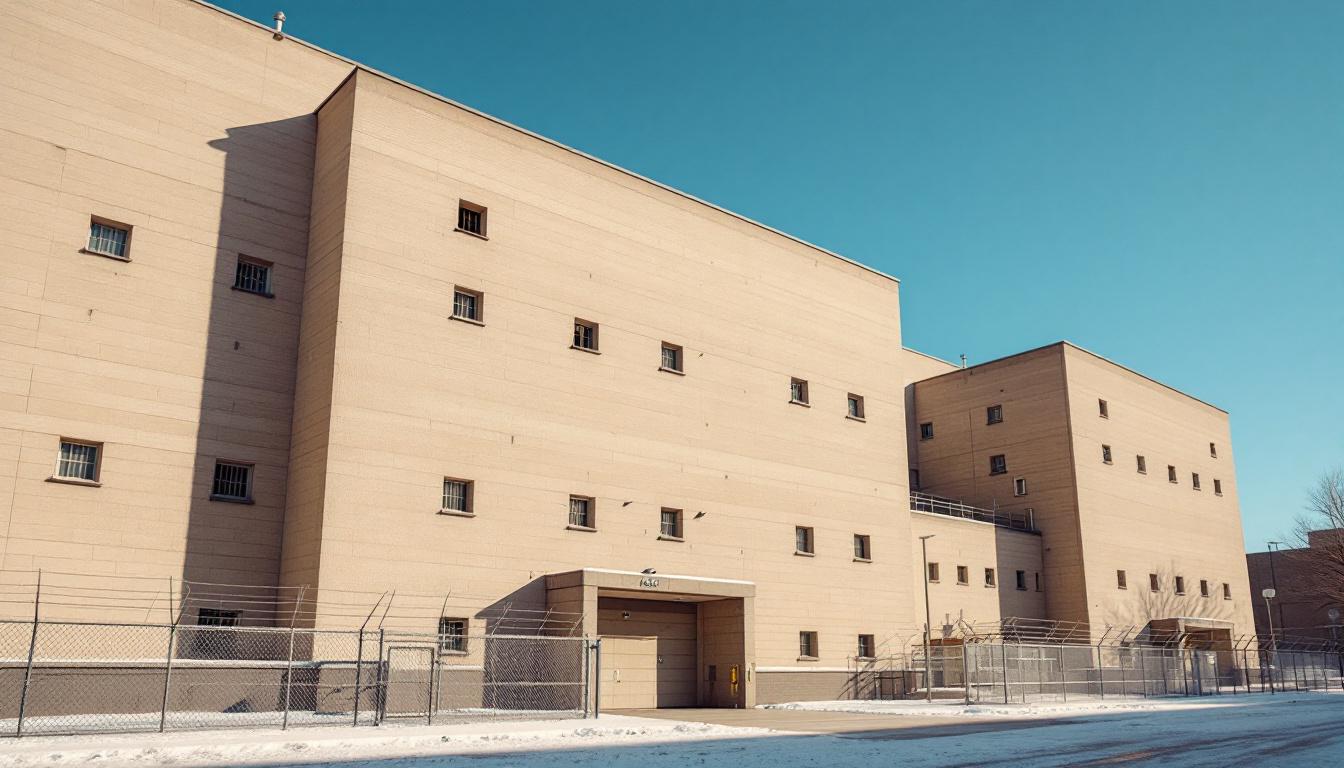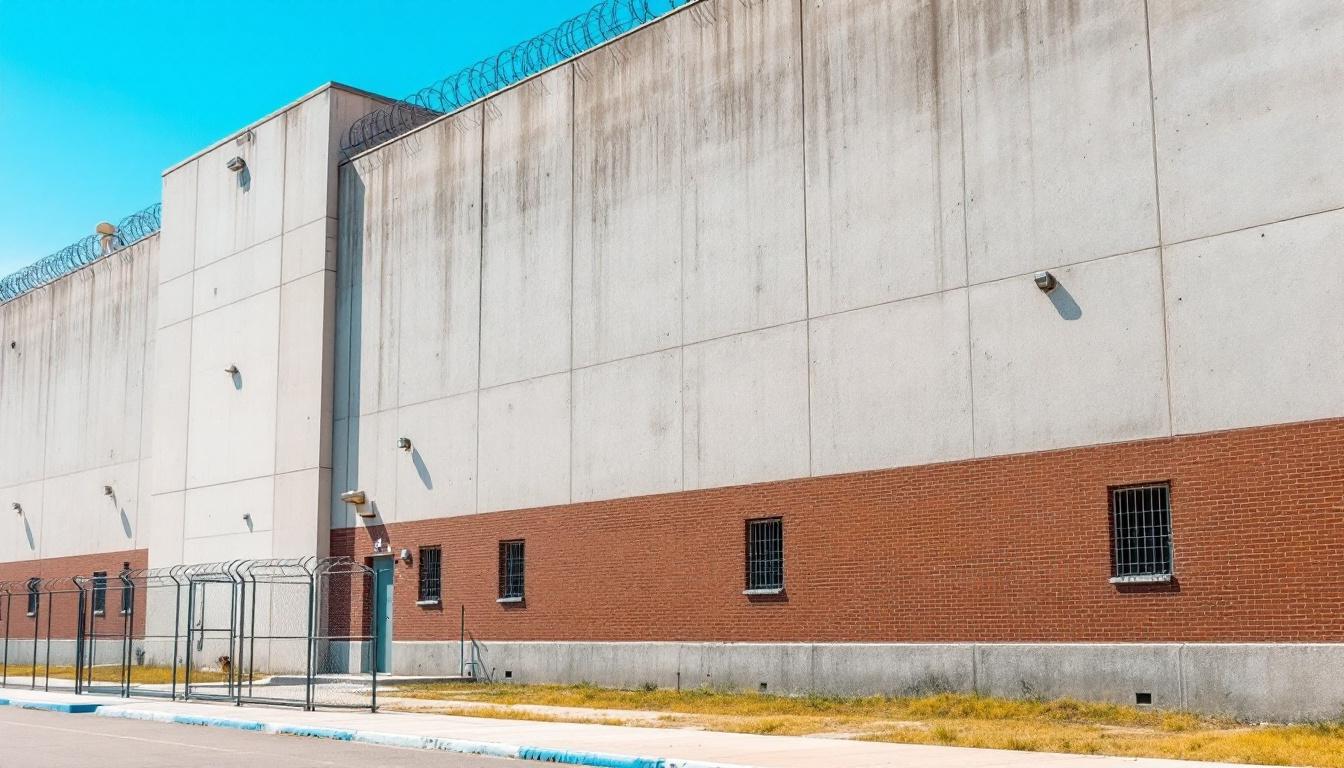
Quick Navigation
How to contact an inmate at Fort Dodge Correctional Facility
This comprehensive guide will walk you through how to connect with an inmate at Fort Dodge Correctional Facility. Follow the steps below to find an inmate and send letters and photos:
- Search for the inmate using our search tool below
- Create your account or log in to Penmate
- Write your message (up to 6,000 characters)
- Send instantly - inmates receive printed copies daily
Find an Inmate
Search for an inmate to start communicating today
Tip: You can search by first name, last name, or inmate ID number
To contact a person at Fort Dodge Correctional Facility start by searching for the person on the official facility website. Perform a search by following these steps:
- Step 1: Enter their first name and last name into the search form and click "Search"
- Step 2: Locate their inmate record
- Step 3: Write down their Inmate ID and any housing information provided
Important! Be sure to enter the person's full name. Nicknames should not be used.
How to Send Messages to Inmates

You can use your phone or computer to send emails, letters, and photos to an inmate. Messages are sent electronically to inmate tablets or kiosks at the facility. If you would like to send a message, start by searching for an inmate at Fort Dodge Correctional Facility.
Sending Photos and Postcards

A great way to send love and support to a loved one at Fort Dodge Correctional Facility is to send photos and postcards. It only takes a few minutes to send photos from your phone and it makes a huge difference. You can also mail postcards with words of support and inspiration, or design your own postcard for special moments like birthdays and holidays.
Important! Be sure not to send any explicit photos or they may not be approved by the facility. You can also use a photo printing app like Penmate to make sure your photos are printed at the correct size (4x6 or 3x5) and are mailed according to the rules and regulations of Fort Dodge Correctional Facility.
Frequently asked questions about Fort Dodge Correctional Facility
-
How long does it take to deliver a message?
If you're sending an email message your letter is usually delivered within 24-48 hours. For messages sent via mail you should expect delivery within 3-7 days. All messages will need be approved by Fort Dodge Correctional Facility.
-
How much does it cost to send a message to Fort Dodge Correctional Facility?
You can send a message free using your phone or mail a message via USPS for the price of a $0.60 stamp and envelope. You can also purchase credits or e-stamps from services starting at $1.99.
-
What services can I use to contact an inmate at Fort Dodge Correctional Facility?
Penmate
You can use Penmate to send letters and photos to an inmate from your phone. It's an easy way to stay in touch during your loved one's incarceration. Use the inmate locator to find an inmate's location and contact information, then you can send messages within a few minutes.
Securus messaging
Securus may be another option for communicating with an inmate at Fort Dodge Correctional Facility. You can create a friends and family account and purchase credits to send messages. All messages will be reviewed and must be approved by the facility.
JPay
Some county jails and state prisons may support sending messages with JPay. You must register an account with the system, find your loved one, and purchase stamps to send messages. For some locations you can also attach photos.
Smart Jail Mail
You may also check if Smart Jail Mail is available at Fort Dodge Correctional Facility. Smart Jail Mail is operated by Smart Communications and has contracted with some state and county jails. After purchasing credits, your messages and photos are sent to the facility, printed out, and then handed out to your loved one.
-
What is the mailing address of Fort Dodge Correctional Facility?
Mailing address:
Fort Dodge Correctional Facility
1550 L St
Fort Dodge, IA 50501
Phone: (515) 574-4700Business hours:
- Monday: 8:00 AM – 4:30 PM
- Tuesday: 8:00 AM – 4:30 PM
- Wednesday: 8:00 AM – 4:30 PM
- Thursday: 8:00 AM – 4:30 PM
- Friday: 8:00 AM – 4:30 PM
- Saturday: Closed
- Sunday: Closed
-
What are the visiting hours at Fort Dodge Correctional Facility?
Visiting hours at Fort Dodge Correctional Facility vary by housing unit and security level. Generally, visits are scheduled on weekends and holidays, with some facilities offering weekday visits. Contact the facility directly at (515) 574-4700 or check their website for the current visiting schedule. Visits typically last 30-60 minutes and must be scheduled in advance.
-
What items are prohibited when sending mail to Fort Dodge Correctional Facility?
Prohibited items typically include: cash, personal checks, stamps, stickers, glitter, glue, tape, staples, paperclips, polaroid photos, musical or blank greeting cards, hardcover books, magazines with staples, and any items containing metal or electronics. Only send letters on plain white paper with blue or black ink. Photos must be printed on regular photo paper (no Polaroids). Always check with Fort Dodge Correctional Facility for their specific mail policies.
-
How do I send money to an inmate at Fort Dodge Correctional Facility?
You can send money to an inmate at Fort Dodge Correctional Facility through several methods: 1) Online using JPay, Access Corrections, or the facility's approved vendor, 2) Money orders mailed directly to the facility with the inmate's name and ID number, 3) Kiosks located in the facility lobby, or 4) Over the phone using a credit or debit card. Fees vary by method, typically ranging from $2.95 to $11.95 per transaction.
-
Can I schedule a video visit with an inmate at Fort Dodge Correctional Facility?
Many facilities now offer video visitation as an alternative to in-person visits. At Fort Dodge Correctional Facility, video visits may be available through services like Penmate, Securus Video Connect, GTL, or ICSolutions. Video visits typically cost $10-20 for 20-30 minutes and must be scheduled in advance. You'll need a computer or smartphone with a camera and reliable internet connection. Contact the facility for their specific video visitation policies and approved vendors.
-
What identification do I need to visit an inmate at Fort Dodge Correctional Facility?
All visitors must present valid government-issued photo identification such as a driver's license, state ID, passport, or military ID. Minors must be accompanied by a parent or legal guardian who can provide the minor's birth certificate. Some facilities require visitors to be on the inmate's approved visitation list, which may require a background check. Contact Fort Dodge Correctional Facility for specific ID requirements and visitor approval procedures.
-
How can I find out an inmate's release date?
To find an inmate's release date at Fort Dodge Correctional Facility, you can: 1) Use the online inmate search tool if available, 2) Call the facility's records department, 3) Contact the inmate's case manager or counselor, or 4) Have the inmate provide this information during a call or visit. For privacy reasons, some facilities only release this information to immediate family members.
Facility Overview
Contact Information
Fort Dodge Correctional Facility1550 L St
Fort Dodge, IA 50501
Phone: (515) 574-4700
Official Website

About Fort Dodge Correctional Facility
Nestled within the rural landscape of Las Vegas, Iowa, this correctional facility serves as a vital component of the state's commitment to rehabilitation and public safety throughout the Midwest region. Fort Dodge Corr. Facility, Iowa operates with a focus on creating meaningful pathways for residents to develop essential life skills and educational foundations that support successful community reintegration. The facility's location in Las Vegas provides a setting where residents can access various programming opportunities designed to address individual needs while maintaining important connections to Iowa's broader correctional network.
The IA correctional facility typically emphasizes educational advancement and vocational training as cornerstone elements of its rehabilitation approach. Residents services may include literacy programs, substance abuse counseling, and workforce development initiatives that prepare individuals for productive employment upon release. Mental health support and behavioral programming often complement these offerings, creating a comprehensive framework designed to reduce recidivism and promote positive outcomes for both residents and the Las Vegas area community.
Through its strategic position within Iowa's correctional system, the facility generally maintains collaborative relationships with local organizations and state agencies to enhance program effectiveness. The correctional facility's emphasis on rehabilitation reflects broader trends in modern corrections, where evidence-based practices guide programming decisions and community partnerships strengthen the transition process for returning residents throughout the region.
Programs & Services
Educational services typically form the foundation of rehabilitation efforts, with residents gaining access to literacy programs, GED preparation, and basic academic skill development. The facility often emphasizes practical learning that directly connects to post-release success. Mental health services may deliver individual counseling, group therapy sessions, and crisis intervention support to address underlying issues that contribute to criminal behavior. These therapeutic initiatives often include substance abuse treatment and cognitive behavioral programming designed to help residents develop healthier coping mechanisms.
Vocational programs frequently provide hands-on training in trades such as construction, maintenance, and food service operations that prepare residents for employment opportunities upon release. Furthermore, educational initiatives may include computer literacy courses and job readiness workshops that teach resume writing, interview skills, and workplace expectations. The facility typically offers GED classes and adult basic education to help residents complete their high school equivalency and improve their academic foundation for future educational or career pursuits.
Support services often encompass creative writing workshops that allow residents to express themselves and process their experiences through written communication. Restorative justice initiatives may deliver programming that helps residents understand the impact of their actions on victims and communities. Furthermore, victim awareness programs typically encourage residents to develop empathy and take responsibility for their behavior. These therapeutic and support initiatives often work together to address the social, emotional, and psychological factors that may contribute to criminal behavior while building the skills necessary for successful community reintegration.
Daily Life & Visitation
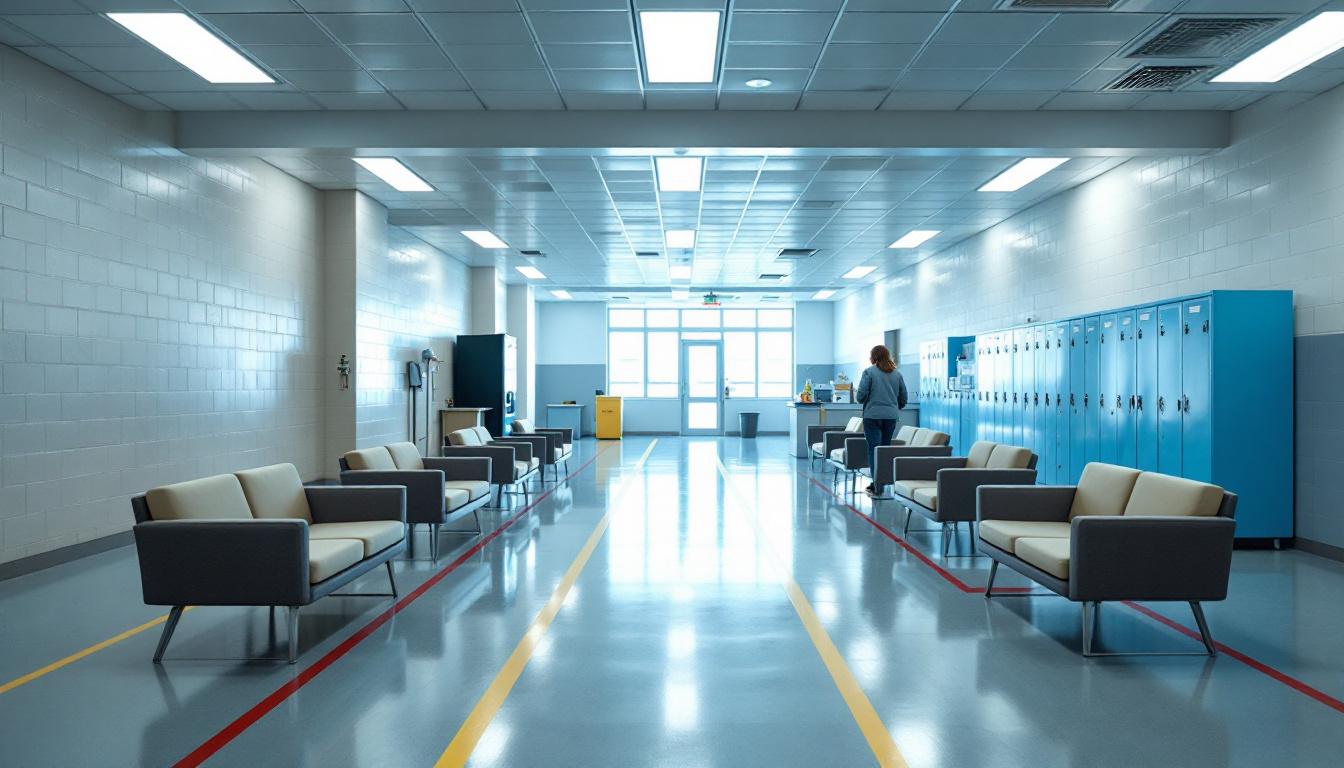
Structure forms the backbone of each day, with residents following consistently scheduled routines that begin before dawn and continue through evening hours. Today's activities typically include scheduled meal times, work assignments, educational programming, and recreational periods that deliver predictability and purpose. This framework generally helps residents adapt to institutional life while maintaining focus on rehabilitation goals.
Living accommodations usually feature shared housing units where residents may have cellmates or dormitory-style arrangements depending on security classification and available space. Personal property is typically limited to approved items that can be stored in designated areas, while commissary access often allows residents to purchase additional necessities and approved comfort items. Furthermore, dining arrangements generally involve scheduled meal service in common areas, with menus that aim to meet basic nutritional requirements while accommodating some dietary restrictions.
Programming schedules often deliver educational opportunities, vocational training, and counseling services throughout the week. Although recreational activities may include outdoor exercise periods, indoor fitness options, and organized sports when weather and security conditions permit, these opportunities typically operate within structured timeframes. Visitation policies generally allow family members to maintain contact through scheduled visits, phone calls, and correspondence, providing crucial support systems that help residents stay connected to their communities during their incarceration period.
Ready to Connect?
Start communicating with your loved one today
Search for an Inmate
